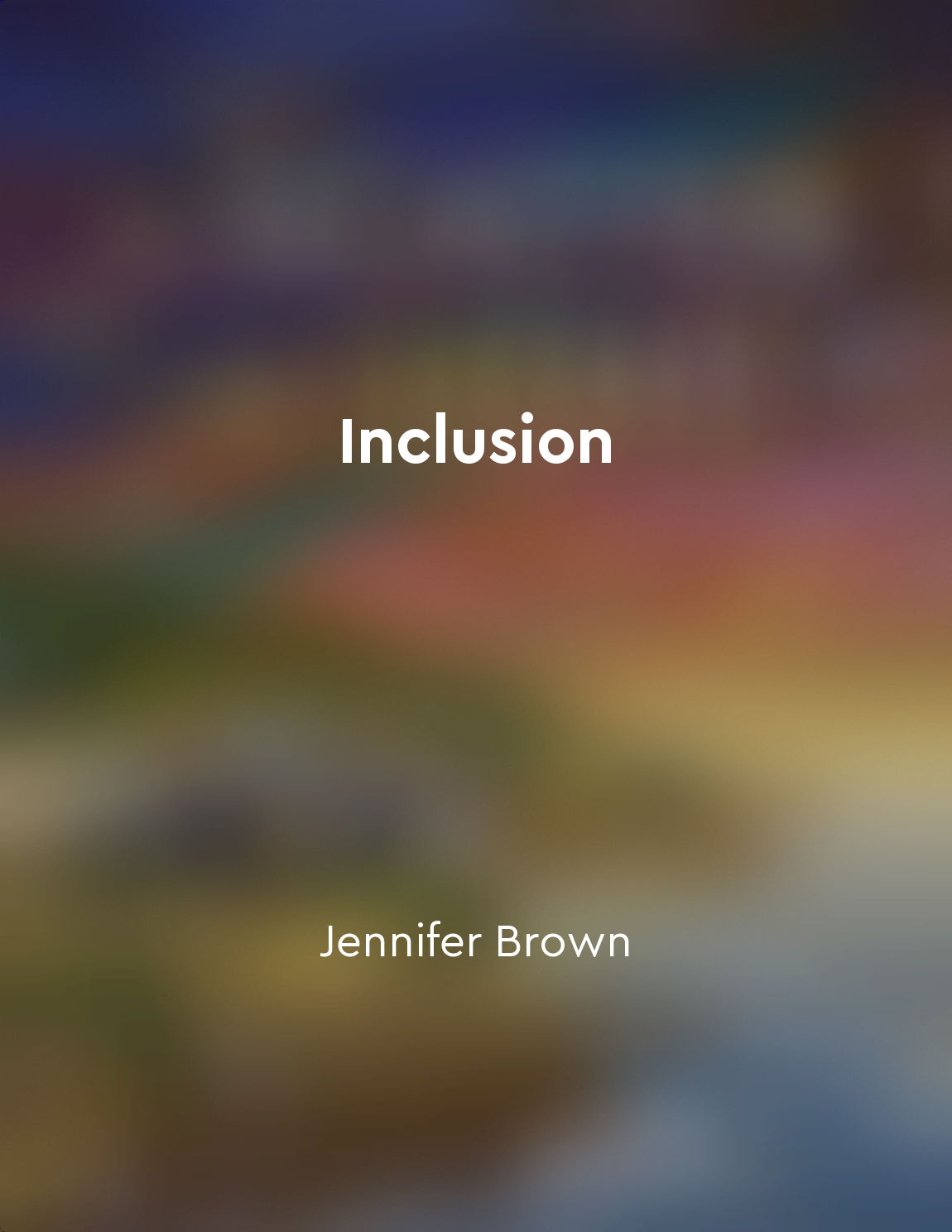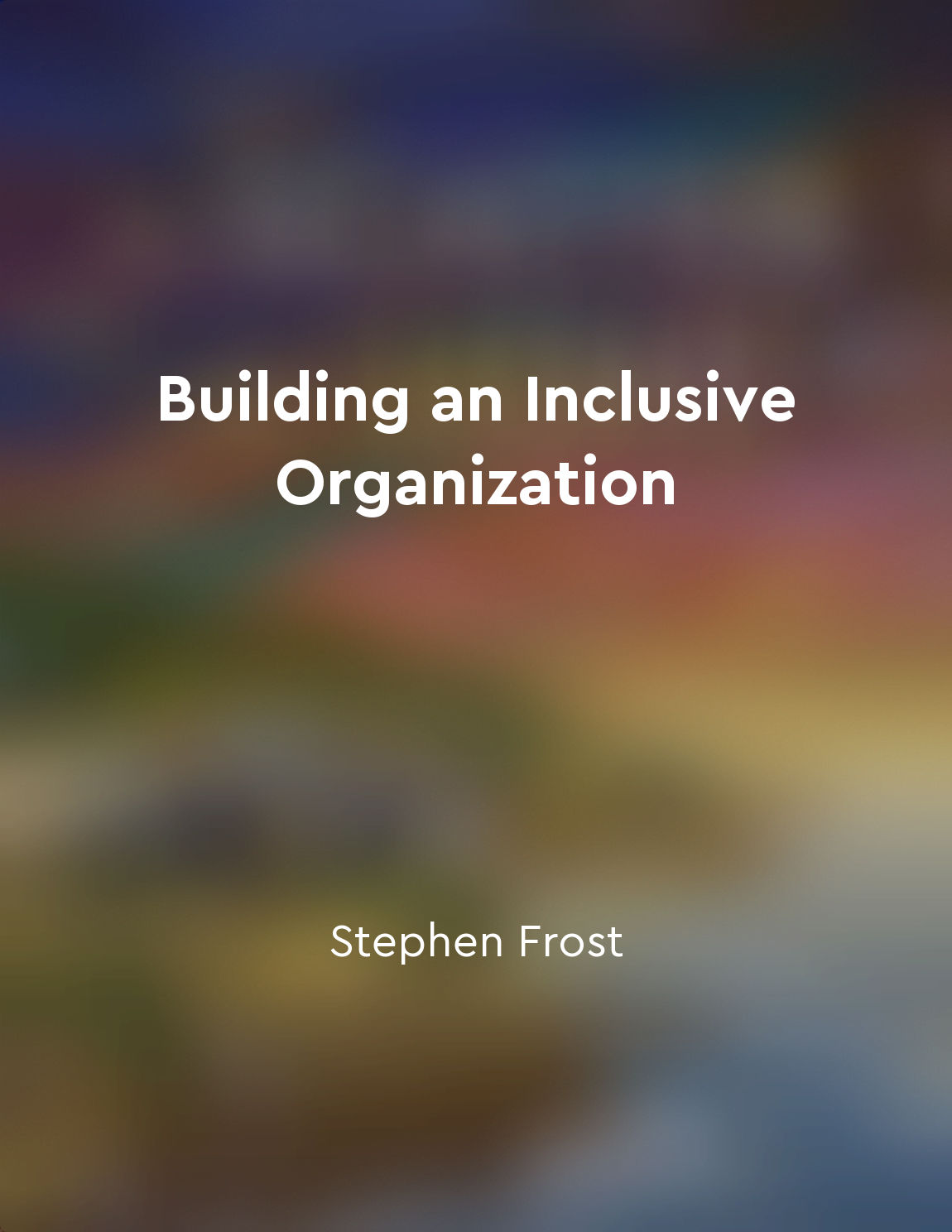Challenge systemic barriers to inclusion from "summary" of Building an Inclusive Organization by Stephen Frost,Raafi-Karim Alidina
To truly create an inclusive organization, it is imperative to identify and address the systemic barriers that may be preventing certain individuals or groups from fully participating and contributing. These barriers can manifest in various forms, such as biased hiring practices, exclusionary policies, or lack of representation in leadership positions. By challenging these barriers, organizations can begin to dismantle the structural inequalities that perpetuate exclusion and discrimination. One key aspect of challenging systemic barriers to inclusion is to critically examine the existing processes and practices within the organization. This involves questioning the status quo and being willing to confront any ingrained biases or prejudices that may be present. It also requires a commitment to actively seeking out and addressing areas where inequality may be present, such as in recruitment, promotion, or decision...Similar Posts
Workplace structures foster fear and insecurity among employees
Anderson argues that within the private government of the workplace, employees often experience fear and insecurity as a result...
Support from partners is essential in achieving professional success
In order to achieve professional success, it is crucial to have the support of one's partner. This support can come in various ...
Harnessing the potential of renewable energy sources
The concept of harnessing the potential of renewable energy sources is essential for sustainable development and environmental ...
Prioritize continuous learning to stay ahead in a rapidly changing world
To succeed in today's rapidly changing world, leaders must make continuous learning a top priority. The pace of change is faste...
Recognize and celebrate the contributions of others
Recognizing and celebrating the contributions of others is a fundamental aspect of effective leadership. When we acknowledge th...
Give back to society in meaningful ways
To me, the idea of giving back to society is not just about writing a check or donating money to a cause. It's about making a r...

Adapt your communication style
Adapting your communication style means being flexible in how you interact with others based on their preferences and needs. It...

Emphasize intersectionality
When we talk about inclusion, we must understand that each person brings a unique set of experiences, identities, and perspecti...

